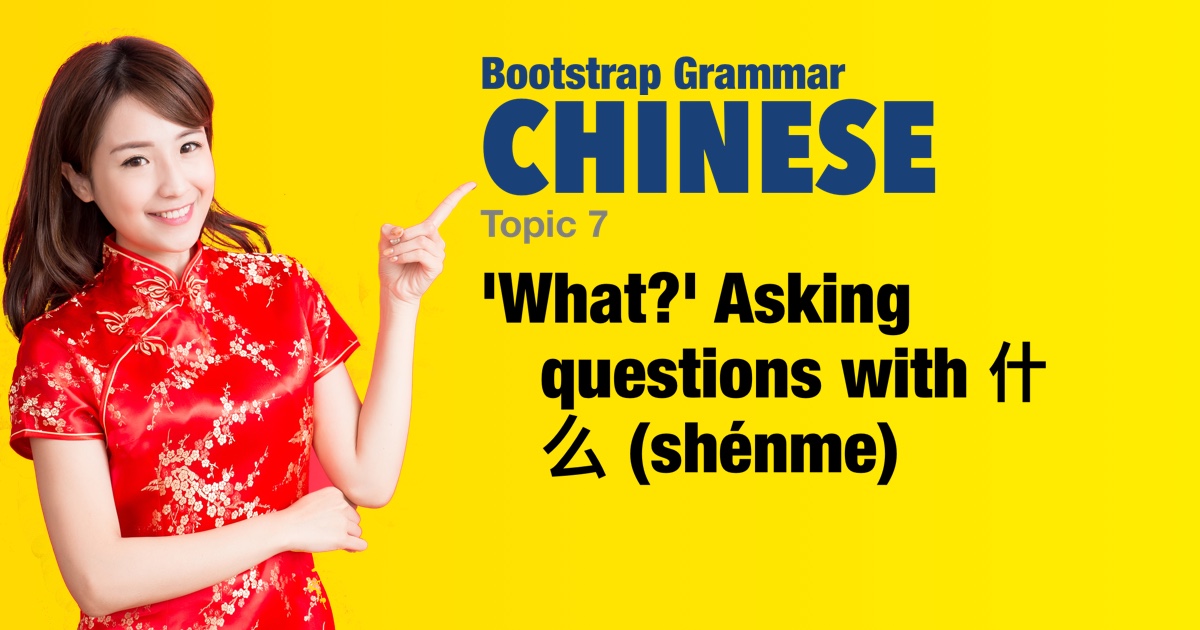Chinese grammar - 'What?' Asking questions with 什么 (shénme) |
|||
|
|||
Another way to ask questions in Chinese is to use the interrogative pronoun 什么 () which means 'what'. It can be used to pose questions about objects, concepts, and actions. When asking 'what?', 什么 replaces the question particle 吗 and always comes after the verb - typically at the end of a sentence. — So in Chinese, we ask 'This is what?' and not 'What is this?' |
| Examples: | |
|
这是什么?
zhè shì shénme? What is this (thing)? |
|
|
那是什么?
nà shì shénme? What is that (thing)? |
|
|
你吃什么?
nǐ chī shénme? What do you eat? |
|
|
他吃什么?
tā chī shénme? What does he eat? |
|
|
老师吃什么?
lǎoshī chī shénme? What does [the] teacher eat? |
|
|
美国人吃什么?
měiguó rén chī shénme? What does [the] American eat? (or What do Americans eat?) |
|
|
你看见什么?
nǐ kànjiàn shénme? What do you see?
|
|
|
他喝什么?
tā hē shénme? What does he drink? |
|
|
工程师是什么?
gōngchéngshī shì shénme? What is [an] engineer? (or What does [an] engineer do?) |
|
 |
|



